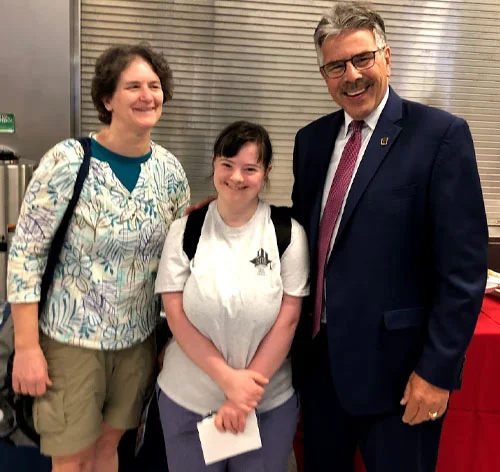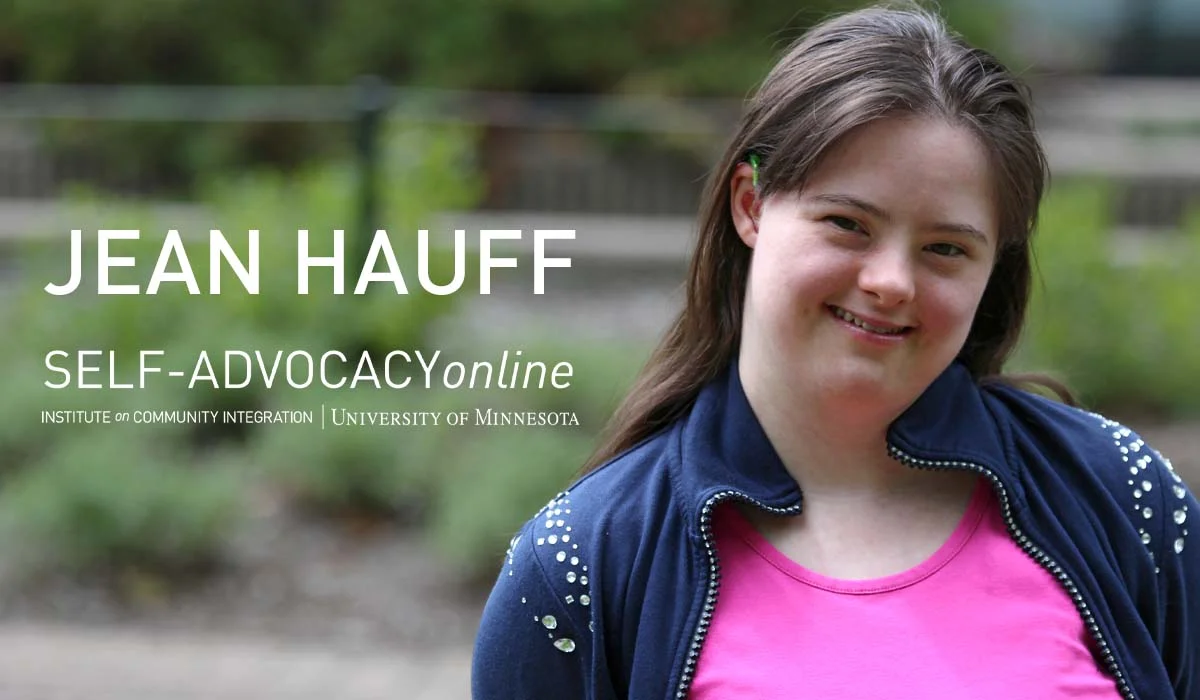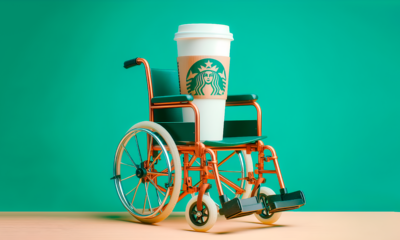Thought and Opinion
Why educating the newer generation about disability history is necessary.

Introduction: As society continues to progress, it becomes increasingly important to cultivate empathy, understanding, and inclusivity. One crucial aspect of fostering a compassionate and inclusive society is educating the next generation about disability history. By imparting knowledge about the struggles, achievements, and contributions of individuals with disabilities throughout history, we can break down barriers, challenge stereotypes, and promote a more inclusive future. In this article, we will explore why it is vital to teach the next generation about disability history.
Promoting Empathy and Understanding: Educating young minds about disability history helps cultivate empathy and understanding. By learning about the challenges faced by individuals with disabilities, children can develop a deeper appreciation for the diverse experiences and abilities of their peers. Understanding disability history allows young people to embrace differences, dismantle stereotypes, and foster a more inclusive mindset.
Challenging Stereotypes and Stigma: Disability history education serves as a powerful tool for challenging stereotypes and combating stigma. By highlighting the achievements and contributions of disabled individuals throughout history, we can challenge preconceived notions that limit the potential and capabilities of people with disabilities. Through knowledge, the next generation can debunk misconceptions and eradicate discriminatory attitudes.
Inspiring Advocacy and Social Change: Studying disability history inspires the next generation to become advocates for equality and social change. By learning about the civil rights movements led by disability activists, such as the fight for accessibility, inclusion, and the right to education, children and young adults can be motivated to become agents of positive change in their communities. Understanding the struggles faced by those who fought for disability rights empowers the next generation to continue the ongoing pursuit of equal opportunities for all.

Encouraging Inclusive Policies and Practices: Education about disability history can shape the development of inclusive policies and practices in various spheres of life. When young people are aware of the challenges faced by individuals with disabilities in areas such as employment, education, and public accommodations, they can advocate for necessary changes and push for more inclusive policies. By understanding the historical context, they can contribute to creating a society where everyone has equal rights and opportunities.
Honoring the Contributions of Disabled Individuals: Disability history education is a way to honor and recognize the significant contributions of disabled individuals to society. From artists and scientists to activists and leaders, disabled individuals have made remarkable contributions throughout history. Teaching the next generation about these achievements not only pays tribute to their accomplishments but also helps cultivate a culture that values and respects the diverse talents and perspectives of all individuals.
Conclusion: In an increasingly interconnected and diverse world, it is vital to teach the next generation about disability history. By promoting empathy, challenging stereotypes, inspiring advocacy, encouraging inclusive policies, and honoring contributions, we can create a more inclusive and equitable society. Education about disability history empowers young minds to embrace diversity, fight discrimination, and work towards a future where individuals with disabilities can thrive and contribute fully. Let us seize the opportunity to shape a generation that understands, accepts, and celebrates the rich tapestry of human abilities and experiences.
Entertainment
Parents Aid Intellectually Disabled in College Degrees


In her home state of Minnesota, the dream of college seemed out of reach for Jean Hauff, a young woman with Down syndrome. She wanted to pursue a career in mass media, but no Minnesota school offered the intellectual disabilities college programs or specific support services she craved.
Jean faced this troubling reality because Minnesota lacked a system that embraced students with disabilities (ID) within mainstream higher education. Existing programs were limited, offering neither the desired fields of study nor the promise of a fulfilling college experience. This situation caused worry for Mary Hauff, Jean’s mother, who since Jean’s birth has been a champion of inclusive education.
This frustration fueled the creation of the Minnesota Inclusive Higher Education Consortium in 2019. This powerful coalition, composed of parents and disabilities advocates, embarked on a mission to transform the higher education landscape for students like Jean.
The efforts of this coalition made a significant turning point in 2023 as the Minnesota Legislature began to recognize the potential and the right of intellectually disabled students. A significant $2 million was allocated for a period of two years to promote inclusive higher education in the region. This brought smiles to parents whose children struggle with ID, highlighting the importance of parental aid degrees.
The vision is clear: students with ID deserve the same opportunities as their peers – the same range of study options, enriching campus experiences, and the chance to earn meaningful credentials. Experts believe that a substantial portion of the allocated funds will directly empower colleges to develop innovative methods to attract and support students with ID, providing much-needed college degrees assistance.
Another crucial aspect of this initiative is the creation of a technical assistance center, funded with $500,000 and housed at the University of Minnesota. This center serves as a central hub for expertise, offering best practices on providing inclusive postsecondary education. Students with ID themselves have a significant voice in shaping this center’s direction, with half the members of its advisory committee coming from this very community.
A past attempt at attending a technical college left Dupree Edwards, a Minnesotan with ID, feeling unsupported and ultimately led him to abandon his pursuit. However, Edwards thrives when given accessible learning materials and a structured environment that caters to his learning pace. The news of the legislation was met with immense joy by Edwards, who aspires to pursue formal studies in performing arts – a dream that now seems achievable thanks to increased disabilities support college.
The Higher Education Opportunity Act of 2008 also laid the groundwork for increased college access for students with ID nationwide. Today, Minnesota joins states like Kentucky, which established a similar technical assistance center in 2020, witnessing a subsequent doubling of college opportunities and disabilities within the state.
Also, institutions can apply for grants of up to $200,000 per year for four years, empowering them to develop or strengthen their capacity to support students with ID. This highlights the importance of inclusive education.
For Jean Hauff, whose college journey took her outside Minnesota due to a lack of suitable options, this initiative holds immense significance. Despite a positive experience at Duquesne University’s pilot program for students with ID, she eventually had to transfer due to program changes.
Now, with this renewed hope, Jean aspires to pursue her education and career goals within her home state.
While this groundbreaking investment serves as a beacon of hope for students with ID in Minnesota, many students like Jean feel that with the help of parents and disabilities advocates, it’s possible to go to college and become whatever they dreamed to be.
Written by Yahuza Bawage
Featured
How Spain Rewrote Its Constitution To Empower Persons With A Disability

The disability rights movement in Spain has long asked that the term ‘handicapped’ be replaced with ‘persons with a disability’, and the country’s constitution was recently altered accordingly. The amendment, voted by a substantial majority in Parliament on January 18, 2024, specifies that public administrations would adopt policies that enable full autonomy and social inclusion of individuals with disabilities.
This is the third time Spain’s constitution has been amended since its adoption in 1978, following the end of Francisco Franco’s tyranny. The previous revisions were enacted in 1992 to allow citizens of other European Union member states to run in municipal elections and in 2011 to meet EU restrictions on public deficits during the eurozone’s debt crisis.
All major political parties backed the constitutional reform, except the far-right Vox party, which voted against it. Pedro Sánchez, the Spanish Prime Minister, welcomed the revision as a “great day for democracy” and apologized on behalf of the country for the delay in making the change. The amendment addressed Spain’s “moral debt” to its four million individuals with disabilities.
Disability rights organizations praised the change, calling it a historic achievement that recognized the dignity and rights of individuals with disabilities. They encouraged the administration to take appropriate measures to implement constitutional principles effectively.
The amendment will now have to be passed by the Senate, which is expected to get similar broad support. Once passed, the new wording of Article 49 of the constitution will be as follows: “The public authorities shall ensure the protection of persons with disabilities, their full autonomy, and social inclusion.” The public authorities must support policies that protect these rights, remove barriers that restrict or impede their full involvement in political, economic, cultural, and social life, and ease access to the services and resources required for growth.
Featured
Unveiling the Literature Talents: Stories of Triumph and Imagination from Disabled Authors

Many talented authors with disabilities have made significant contributions to literature. Here are a few disabled authors across various genres:

- Stephen Hawking:
- Renowned physicist and cosmologist, Stephen Hawking, had amyotrophic lateral sclerosis (ALS). His book “A Brief History of Time” is a groundbreaking work in theoretical physics.
- Temple Grandin:
- An autistic author and professor of animal science, Temple Grandin has written several books, including “Thinking in Pictures” and “The Autistic Brain,” offering insights into autism and her own experiences.
- Christopher Reeve:
- Best known as an actor, Christopher Reeve became an advocate for spinal cord injury research after a horse-riding accident left him paralyzed. He authored books like “Still Me,” reflecting on his life and advocacy.
- Helen Keller:
- Deafblind from an early age, Helen Keller overcame tremendous challenges to become an author, lecturer, and political activist. Her autobiography, “The Story of My Life,” is a classic.
- John Hockenberry:
- A journalist and former host of NPR’s “The Takeaway,” John Hockenberry has written books like “Moving Violations,” sharing his experiences as a wheelchair user and his perspectives on disability.


















